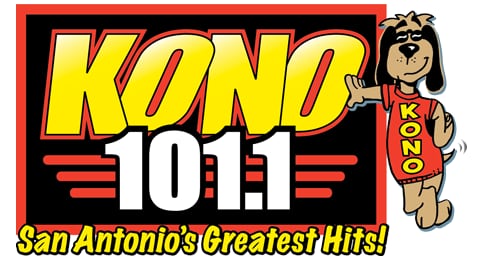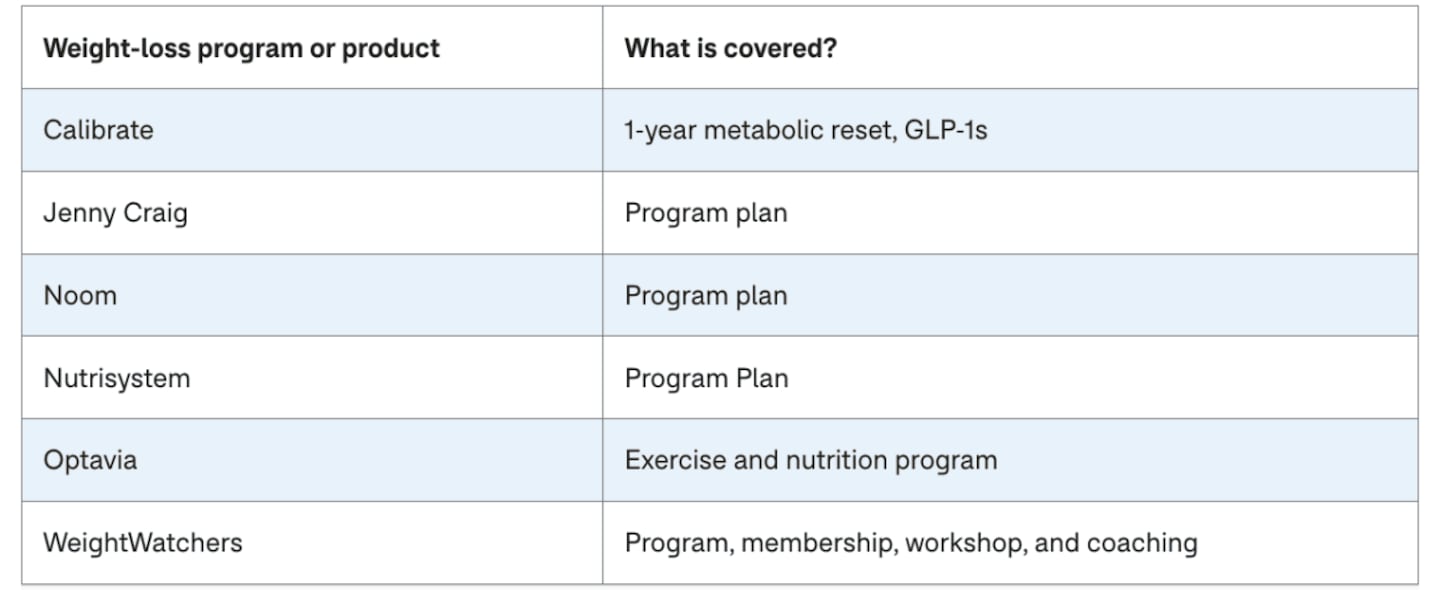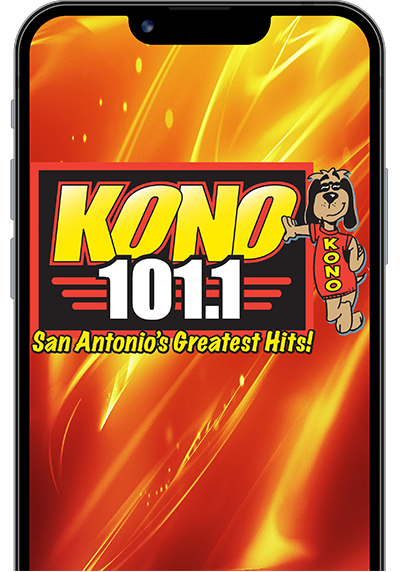Can you use your HSA or FSA to pay for weight loss expenses?
According to the CDC, nearly 75% of adults in the U.S. have a body weight that's considered overweight or obese. Research shows that carrying extra body fat can increase the risk of health conditions, such as high blood pressure and Type 2 diabetes.
Some people focus on nutrition and physical activity to work toward their weight-related goals. Others may explore options like weight-loss medications or surgery to get extra help. Depending on the products, services, or medications you choose, it can be costly, and insurance coverage varies widely. You may be able to use tax-advantaged accounts such as a health savings account (HSA) or a flexible spending account (FSA) to pay for certain expenses not covered by insurance or reimbursed by any other source if certain requirements are met, GoodRx, a platform for medication savings, reports.
Key takeaways:
- Weight-loss programs, services, and products are usually not qualified expenses for a health savings account (HSA) or a flexible spending account (FSA) unless prescribed for a specific medical condition, such as diabetes or obesity.
- If you want to use your tax-advantaged health account to pay for weight-loss items, you may need a letter of medical necessity (LOMN) from a healthcare professional. An LOMN includes your diagnosis, the recommended treatment, and how it could help manage or improve your condition.
- It's a good idea to confirm which weight-loss expenses are HSA or FSA eligible before you purchase them. Some expenses, such as gym memberships, can become FSA or HSA eligible if they are used to treat a medical condition diagnosed by a healthcare professional.
Which weight-loss expenses are HSA and FSA-eligible?
Healthcare expenses beneficial to general health and wellness are typically not HSA or FSA eligible. This includes gym membership and nutrition counseling. Weight-loss expenses must typically be medically necessary and prescribed by a healthcare professional to treat a diagnosed medical condition, such as:
- Acid reflux
- Arthritis
- Back pain
- Heart disease
- Hypertension
- Obesity
- Polycystic ovary syndrome (PCOS)
- Type 2 diabetes
A letter of medical necessity (LOMN) is usually required. An LOMN is a written statement from a healthcare professional explaining why a specific product or service is needed to treat a diagnosed medical condition. It includes your diagnosis, the recommended treatment, and how it will help manage or improve your condition. Many FSA administrators require an LOMN before approving reimbursement for weight-loss expenses. If you have an HSA, you'll need to keep the document to prove your expense is eligible in case you are audited.
Here are different categories of weight-loss items that are typically eligible if you meet those requirements:
- Prescription weight-loss medications
- Medically supervised weight-loss programs
- Bariatric surgeries
- Nutrition and dietitian services
- Gym memberships
Always confirm with your account administrator that these expenses are eligible before buying. Your expense eligibility may depend on the rules outlined by your HSA or FSA administrator.
Are weight-loss medications HSA or FSA-eligible?
GoodRx research shows that prescriptions for weight-loss medications like Wegovy (semaglutide) and Mounjaro (tirzepatide) continue to rise despite high out-of-pocket costs. About one in five people with commercial insurance have no coverage for a brand-name GIP (glucose-dependent insulinotropic polypeptide) and GLP-1 (glucagon-like peptide-1) agonist prescribed for weight loss. Without insurance, you could pay more than $1,100 per prescription.
You may be able to use your HSA or FSA to pay for weight-loss medications if they aren’t covered by your insurance or reimbursed through any other source and you have:
- A prescription from a healthcare professional
- Documentation that the medication is being used to treat a specific diagnosed condition
- An LOMN is required by your HSA or FSA administrator
- Receipts and documentation to support your expense
FDA-approved prescription weight-loss medications for long-term use include:
- Contrave (naltrexone / bupropion)
- Qsymia (phentermine / topiramate)
- Saxenda (liraglutide) – GLP-1
- Wegovy (semaglutide) – GLP-1
- Xenical, Alli (orlistat)
- Zepbound (tirzepatide) – GLP-1/GIP dual agonist
Are weight-loss surgeries HSA or FSA-eligible?
Yes, most bariatric surgeries are HSA or FSA eligible if certain requirements are met. These procedures change the stomach and small intestine to limit food intake, improve digestion, and boost metabolism. To qualify as an eligible expense, the surgery must be deemed medically necessary by a healthcare professional to treat a specific diagnosed condition, such as morbid obesity or obesity-related health problems like type 2 diabetes or hypertension.
Common types of bariatric surgery include:
- Gastric bypass (Roux-en-Y)
- Sleeve gastrectomy
- Laparoscopic adjustable gastric banding
- Biliopancreatic diversion
What about weight-loss programs?
According to the IRS, the cost of a weight-loss program is an eligible medical expense for an HSA or an FSA if the program is prescribed to treat a specific condition diagnosed by a healthcare professional. These conditions can include obesity, diabetes, hypertension, or heart disease. If it’s for general wellness or appearance, it’s not eligible.
To qualify, you’ll need an LOMN from a healthcare professional that states your diagnosis, explains why weight loss is medically necessary, and specifies the program recommended. Once you have your LOMN, you may be able to sign up for weight-loss programs. The table below shows some of the programs you may be eligible to use after contacting your FSA administrator and providing your LOMN.
GoodRx
Which weight-loss items are not HSA or FSA-eligible?
There is often a gray area when it comes to determining whether an item is for general health and wellness. This is why it is important to have a healthcare professional’s diagnosis and recommendation on paper.
The following weight-loss items are typically not HSA or FSA-eligible:
- Diet or organic foods
- Nutritional counseling, unless used to treat a specific condition diagnosed by a healthcare professional
- Meal replacement drinks and shakes (SlimFast, Boost, and Herbalife)
- Spa and health club memberships
- Swimming or dance lessons for the improvement of general health
- Personal training for general fitness or weight management without a qualifying diagnosis
These expenses are usually considered general wellness and not medical care. The IRS also specifically excludes the cost of food or beverages purchased for weight loss because they substitute for what’s normally consumed to meet nutritional needs. But you may be able to include the cost of special food and beverages in medical expenses if all of the following are true:
- The food does not satisfy normal nutritional needs
- The food is used to alleviate or treat a medical condition
- The need for the food is substantiated by a healthcare professional
In these cases, only the portion of the cost above what you’d normally spend on a regular diet is considered eligible. If you have a special situation, work with a healthcare professional to document your medical needs. Also, check with your HSA or FSA administrator and possibly a tax professional to see if an LOMN could make your expense eligible.
What qualifies as an HSA- or FSA-eligible expense?
HSA- and FSA-eligible healthcare expenses are costs that help diagnose, treat, relieve, or prevent a physical or mental disability or illness. This includes out-of-pocket costs, like copays, medical deductibles, and medical screenings. IRS Publication 502 outlines qualified medical and dental expenses. You can also check with your account administrator to see if an expense is eligible.
In some cases, a recommendation from a healthcare professional can turn an ineligible expense into an eligible one if it treats a specific medical condition. For example:
- A weight-loss program is eligible only if it's prescribed to treat a specific condition, like obesity or heart disease.
- A gym membership may be eligible if it's prescribed as part of a treatment plan for a condition or if it's necessary to affect a function of the body (such as physical therapy after an injury).
If an item is HSA and FSA-eligible, how do I redeem my benefits?
If an item is HSA or FSA eligible, you can usually pay for it directly with your account’s debit card. If you do not have a card, you can make a claim for reimbursement after you pay for the expense out of pocket. An LOMN may be necessary for your HSA or FSA administrator to approve expenses. It’s recommended that you keep your receipts and LOMN to ensure you get reimbursed if you pay out of pocket.
How can I check if an item is eligible as an HSA or FSA expense?
You can check to see if an item is an eligible HSA or FSA expense by referring to your account administrator’s website. If there’s any confusion, ask them to confirm an item’s eligibility.
Do I need to worry about HSA or FSA expenses when I prepare my tax return?
If you use your HSA or FSA for qualified medical expenses, you don’t have to worry about paying taxes on those withdrawals. Distributions for approved HSA expenses are completely tax-free.
But if you use your HSA to pay for non-qualified weight-loss items, the amount will be treated as taxable income. If you're under age 65, you'll also face a 20% tax penalty. Once you turn 65, you'll still pay regular income tax on non-qualified HSA withdrawals, but the penalty goes away. With an FSA, there's no IRS penalty for ineligible spending. But your employer may require you to repay the funds. If you're unsure whether an expense qualifies, check with your HSA or FSA administrator before you spend the money.
What’s the difference between HSA eligibility and tax-deductible?
HSA-eligible means an expense qualifies under IRS rules as a qualified medical expense that you can pay for with money from your HSA. If it’s HSA eligible, you can use your HSA debit card or reimburse yourself later. Those withdrawals are 100% tax-free.
If an expense is tax-deductible, you can subtract the cost of your expense from your taxable income when filing your annual tax return. This reduces the amount of income the IRS can tax. For medical expenses, you must itemize deductions to receive tax benefits, and you can deduct only the portion that exceeds 7.5% of your adjusted gross income (AGI).
Here’s an example: Let’s say your weight-loss medication is HSA or FSA eligible. This means you can cover your out-of-pocket costs tax-free with your health funds. If you didn’t use an HSA or FSA, you might be able to deduct the cost on your tax return if you itemize deductions, but only if your total medical expenses are high enough to exceed the 7.5% AGI threshold.
The bottom line
Weight-loss programs, medications, and other items can be paid for or reimbursed by an HSA or FSA if they are prescribed to treat a specific medical condition. You may need a letter of medical necessity from a qualified healthcare professional to prove your condition and ensure your items are HSA or FSA-eligible.
Be sure to keep documentation to back up your expenses. Otherwise, you may have to repay FSA funds if an expense is deemed ineligible. If you use an HSA to pay for non-qualified weight-loss items, you could face a tax penalty.
This story was produced by GoodRx and reviewed and distributed by Stacker.










